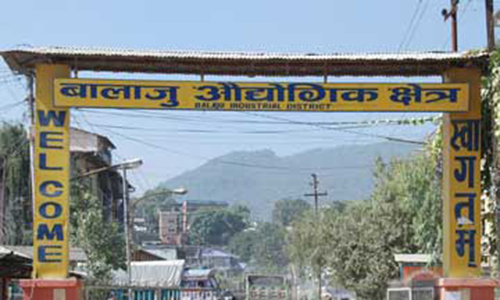Milk powder plant to be built in Balaju
KATHMANDU, OCTOBER 9
Province Dairy Development Board (PDDB) has started the process to construct a milk powder plant in Province 3.
The board is preparing to call a tender within a week for the construction.
The PDDB will be constructing the plant which will be under complete ownership of the provincial government, said PDDB Executive Director Satrudhan Shah. According to him, the board has targeted to complete the construction within three years.
“We are trying to call and hand over the tender before the festive season begins,” he said. According to him, the board has estimated that a sum of around Rs 455 million will be needed to build the plant. The board will use the land of the feed factory of Dairy Development Corporation (DDC), located in Balaju.
The Cabinet of the provincial government has taken a decision to utilise two bighas of land to build the plant.
The feed factory has a total of eight bighas of land. The provincial Cabinet has also sent a letter to the Ministry of Agriculture and Livestock Development (MoALD) to lease the land. Currently, the land is under the ownership of MoALD. “We are holding discussions with the stakeholders to take the land on lease,”
Shah said. “By the time land deal is finalised we will be completing tender process.”
According to him, the preliminary report of the Environment Assessment Impact has already been prepared by the Livestock and Fisheries Development Centre, Hetauda.
With investment worth Rs 455 million, the board has set a target to produce 1,500 tonnes of milk powder annually.
Currently there are three milk powder plants — one each in Biratnagar, Pokhara and Chitwan.
The Chitwan milk powder plant has recently resumed operations after being shut down for a long time. The country needs 3,500 tonnes to 4,000 tonnes of milk powder annually while the three milk powder plants can produce only around 2,000 tonnes of milk powder in a year. Thus, the new milk powder plant is expected to considerably help the farmers in particular.
During the pandemic, most of the farmers had to either throw away their milk, give it away for free or sell it at a low price. Such kinds of issues are expected to reduce if only the country can build enough milk powder plants to utilise the milk that has been produced by the farmers.






